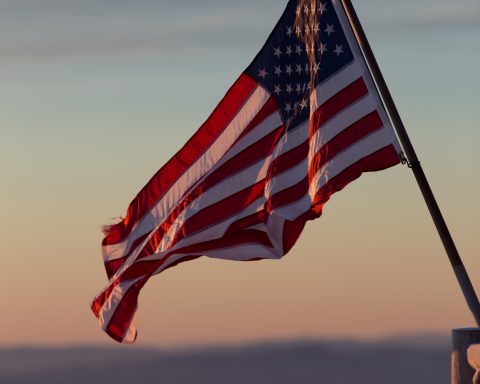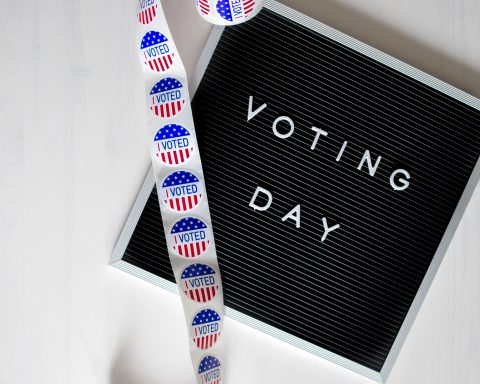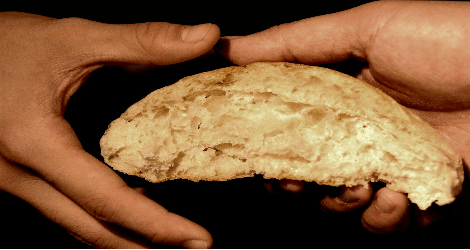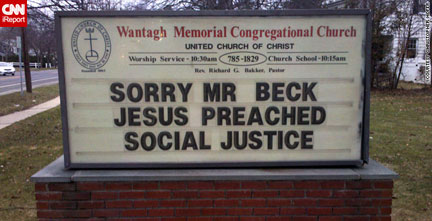A Turning Point: To die or live by the sermon
This question became the turning point in my ministry. It redefined the future of my calling. They said that conduct like mine would result in empty churches. But I resolved to die or live by the sermon, i.e. by faith.
By calling clergy subversive, the President opened a new chapter in media history, propelling faith to become the forum for change. The President, inadvertently, helped sermons move from the church to the self-censored media. What a special present to the Gospel! He opened the bridge between faith and society. I was overwhelmed by people flocking to St. Andrew’s church, from all over the world, from Monday to Sunday, asking for sermons. All they wanted were sermons!
President Moi’s wrath pulled the churches out of their closets. He globalized the debate. He became the feet and wings of faith like a bee scattering pollen. Blaine Harden of the Washington Post observed,
The church has emerged as one of the few institutions willing to challenge the policies of Kenya’s powerful president and his ruling African National Union (KANU) party… According to the U.S. State Department’s report on human rights in Kenya, political discussion in Moi’s eight-year rule has ‘increasingly focused on local subjects, and there is no criticism of the president or any policies which he initiates or supports.’ The clergy stands alone here in bucking this trend. (Washington Post, October 26, 1986, p. 29).
Harden’s observations were quite correct in that any voice of reason from the Kenyan Legal System, Mass Media, Kenya Planters Cooperative Union, the Civil Service, University, and Parliament had landed many in their graves. The state picked up as traitors any lawyers, professors, managers, students, and street people who dared think independently, stigmatized them as dissidents, tortured some, detained others, and while some escaped the country, the rest had their corpses found in the bushes. State brutality had compelled the church to choose: privilege or faith? God’s calling or compromise with state power?
___________________________________________
By calling clergy subversive, the President opened a new chapter in media history, propelling faith to become the forum for change. The President, inadvertently, helped sermons move from the church to the self-censored media. What a special present to the Gospel!
___________________________________________
A Church / State Issue
Unfortunately, the church panicked. The state pressured the PCEA for a ruling on my sermon. The Moderator of the General Assembly made this press release:
The concern of the content of this sermon has been raised with the Moderator of the General Assembly by the State Supreme Authority. The sermon has been termed a subversive document… It seems to this office, indubitably, Rev. Njoya’s sermon is a direct and deliberate provocation of the state leadership. The Moderator of the General Assembly is required by the state to give an immediate answer pertaining to the production and distribution of Rev. Dr. Njoya’s sermons. Now, the issue of this sermon is a Church State issue.
Allegations such as these carried the weight of capital punishment. The statement constituted clear evidence that the civil society had abdicated its responsibility for governance to the state.
I needed guidance. For inspiration, I looked at some primers like Rules for Radicals by an American labor agitator, Saul Alinsky. I broadened the scope of my spirit by borrowing from the spirits of the dead: Plato, Mahatma Gandhi, Martin Luther King Jr… some ancient originality. After examining Nyerere’s, Nkrumah’s, and Kaunda’s wisdom about one-party systems, I arrived at the philosophical conclusion that if humanity has made some headway in realizing that the ultimate value of every institution is its distinctively human effect—its effect upon conscious experience—we may well believe that it is humanity as a whole to whom sovereignty belongs, and not to the church and the state alone.
I soon learned to take advantage of my phone being bugged to help the Special Branch compile a true briefing to the president about my next prophetic agenda. In fact, I got accustomed to using the Special Branch surveillance to have dialogue with the national security machineries. I was on the top, it turns out, of daily briefings. The fact that I escaped assassination was sung by Dumfermline in 1615: God moves in a mysterious way, God’s wonders to perform.
In the meantime, the church continued to debate what exactly it should do with me. The Presbytery proposed I take early retirement. The Head Office wanted me deposed.
Had I wanted to form my own church, this was the time. There was not a day that passed without a minister proposing we leave the church and form our own. But forming a splinter church would have reduced the power of the faith movement and destroyed the broad based unity of Muslims, Christians, humanists, and others. When the National Christian Council’s officials proposed I form my own church, they were confusing issues of governance with desire for power.
I left these machinations to others and stuck to my sermons, winning international media to my side. President Moi summoned all Kenyan Ambassadors and officials to defend the Kenyan position. This failed. God’s free gifts of faith and conscience moved forward. The Catholic Church, long praised by the government for not being subversive, began to address issues of national interest and to issue pastoral letters to the press.
___________________________________________
Had I wanted to form my own church, this was the time… But forming a splinter church would have reduced the power of the faith movement… and confused issues of governance with desire for power.
___________________________________________
But on August 15, 1987, the Presbytery yielded to the pressure of the Head Office (and the state), deposed me of office, and sacrificed me on the altar of state infallibility.
Deposed or not, I continued to preach. The police abducted my lawyer (who was working a case for three detainees), stripped him naked, “teased” his body, and demanded to know why he was found in possession of a copy of my (apparently outlawed) sermon. They took him to prison without trial and kept him there for over ten months.
Know that hundreds of church members and workers suffered more than me. And even then we refused to fracture. I loved my moderator and president, and would have stood between a bullet and them at all times during my struggle with them. I would not have fought for democracy without them. Moi was still a member of the human species and accountable to God. Our common humanity was thicker than our differences. Please understand: African autocrats did not destroy democracy. There was no democracy in the colonial institutions they inherited. Their imperialism, in other words, did not come from a peculiar African disease. Africans had no special defect preventing them from embracing the Universal Declaration of Human Rights, scriptural norms, democracy, and human dignity. Rather, they were handed a system incapable of becoming democratic.
Our Raison d’être: Jesus Alone Is Lord
Throughout all these struggles, the people kept their faith in God’s governance. God’s democracy was forming in their lives. They practiced it in their kitchens by sharing responsibilities. Democracy begins where two or three are gathered together for the purpose of taking care of each other in the same way the Creator cares for them. In this way, human governance must take its cue from divine governance (so that our governing bears the substance of God’s approval, standard, imprint, “tag”).
God governs by talking, listening, reasoning, and inviting people to “come and let us reason together” (Isaiah 1:18). This is no joke. God has set up procedures for facilitating complaints and grievances, which Job (Job 7:20) utilized by hitting back against God. Jesus followed suit and yelled at God, “My God, my God, why have you forsaken me?” (Mark 15:34). If Jesus and Job had complained like that before President Moi, Mobutu, or Amin, they would have been disfigured and disposed of by the Presidential secret bureau.
It was faith in such a God, not a President Moi, that kept us going. Faith is governance where God’s jurisdiction and human jurisdiction share both mutual responsibility and limitations. The only rule St. Paul issued on faith happened to be a political one. The rule was simply this: assent that Jesus is Sovereign (Romans 10:9). Emperors Nero, Titus, Decius, and Domitian reacted against the bearers of faith very cruelly. It cost the apostles their lives. The Kenyan government consistently reacted equally against governance, against this simple theological, democratic principle: to be human is to submit our will to the will of those who submit theirs to us, because two are better than one, and we are all made in God’s image.
___________________________________________
The only rule St. Paul issued on faith happened to be a political one. The rule was simply this: assent that Jesus is Sovereign (Romans 10:9).
___________________________________________
Unfortunately, Christianity as a religion has also often balked at this governance. In fact, the Christianity of today is a product of deliberate non-governance, which means supporting whatever government supposed to provide Christianity with a climate conducive for soul-saving. The church opted for “spirituality.” Christians walked away from the stewardship of their lives and left it to the state, chasing the illusion of a hazy and cloudy paradise. In the meantime, there was Apartheid; there was white supremacism; there was Kenya…
But Christ’s apostles organized a structure for body-care-taking, diaconia (duties owed by everybody to everybody). In Acts, deacons were arranged to care for physical needs. The Lord’s Prayer does not say God’s will be done in the church, soul, or spirit, but on earth. In what came to be known as the Great Commission, Jesus sent the disciples to all nations (Matthew 28:19), not to all souls. Jesus was crucified and resurrected in body.
In Kenya, faith gave birth to activist and advocacy movements for no other interest than to translate its vision of God’s governance into social reality. This distinguished faith from the church’s preoccupation with liturgy, church attendance, Bible study, Sunday school, social services, and other cross-avoidance practices.
For, “Thus says the LORD: If you turn back, I will take you back, and you shall stand before me. If you utter what is precious, and not what is worthless, you shall serve as my mouth” (Jeremiah 15:19).
 Timothy Murere Njoya is a Minister of the Presbyterian Church of East Africa and a leading advocate for justice and human rights in Kenya. Rev. Njoya received his Ph.D. from Princeton Theological Seminary in 1971 and Doctor of Divinity from Knox College, University of Toronto, in 1998. He is the recipient of the John Humphrey Freedom Award of the International Centre for Human Rights and Democratic Development (2000) and the E.H. Johnson Award of the Presbyterian Church of Canada/E.H Johnson Memorial Trust (1995). Rev. Njoya is currently the Executive Director of Men for the Equality of Men and Women (MEW), a ground-breaking initiative that seeks to create equitable gender relations through public education and social action. Check out his website.
Timothy Murere Njoya is a Minister of the Presbyterian Church of East Africa and a leading advocate for justice and human rights in Kenya. Rev. Njoya received his Ph.D. from Princeton Theological Seminary in 1971 and Doctor of Divinity from Knox College, University of Toronto, in 1998. He is the recipient of the John Humphrey Freedom Award of the International Centre for Human Rights and Democratic Development (2000) and the E.H. Johnson Award of the Presbyterian Church of Canada/E.H Johnson Memorial Trust (1995). Rev. Njoya is currently the Executive Director of Men for the Equality of Men and Women (MEW), a ground-breaking initiative that seeks to create equitable gender relations through public education and social action. Check out his website.






Unbound Social